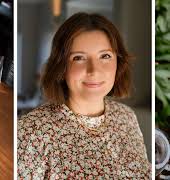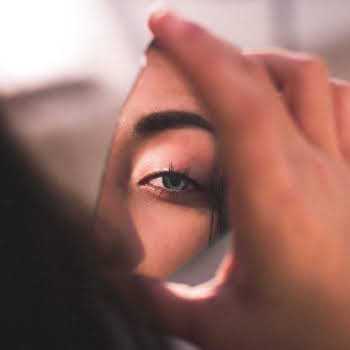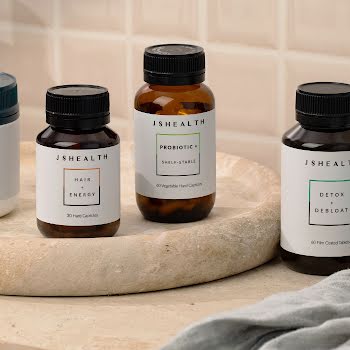Feeling blue? 5 ways to feel happy according to the experts
Here we look at the science behind happiness, as well as five ways to feel happy according to biology and psychology experts
We have the power to make ourselves happier. It doesn’t involve a dream holiday, or even a winning lottery ticket – all it takes is a little bit of self-awareness and a desire to change.
The science
Biologically speaking, all you need to do is smile (please, don’t roll your eyes). Whether you’re feeling angry, anxious, sad, or stressed, plastering a smile on your face will boost your mood in seconds. A study carried out by scientists Tara Kraft and Sarah Pressman at the University of Kansas proves that the physical act of smiling makes us feel better. The facial muscles we use for smiling instantly trigger the release of serotonin in our brains.
Nicknamed the ‘feel-good hormone’, serotonin can improve a person’s mood, libido, appetite, and sleep – all of which have further happy side-effects. You don’t have to feel remotely happy for this to work. Even if you’re in the foulest form, faking a smile will bring your stress levels right back down to normal. Go on, try it.
The psychology
Psychologically, it goes a bit deeper. Nic Marks, the author of The Happiness Manifesto, says, “Happiness is about pleasure and meaning. The two things are compatible – we can have them both, though there are times when one will outrun the other.”
Speaking at a wellness retreat with Fitbit in Barcelona, Marks used his personal experience of marriage as an example. His marriage ended in divorce because, while it was a very meaningful union between him and his wife, he wasn’t getting pleasure from it. “My meaning was very strong, but that was eventually overridden by the fact that I needed to enjoy life more.”
Similarly, he explains how people can have too much pleasure and not enough meaning. Those addicted to substance abuse often come to realise that, while they’re enjoying the pleasure of their drug, there’s no meaning behind it. It is at this point that drug users or alcoholics tend to seek help. Marks emphasises the need to balance both pleasure and meaning in order to achieve complete happiness.

Being happy doesn’t just make us feel better (not to mention make us nicer people to be around) but happy people live longer. A study carried out on Catholic nuns found that happy sisters outlived the unhappy ones by 3:1. Scientist David Snowdon discovered that happiness led to improved health and well-being, which in turn saw the nuns live well into their nineties.
Considering they lived in the same convent, ate the same food, lived the same lifestyle for decades on end, the only real variable in this study was their levels of happiness, and Marks says, “It’s a very strong indicator that happiness is linked to life expectancy. This is a larger positive on life expectancy than smoking and BMI are negatives.”
Five simple steps
So what can we do to make ourselves happier? The UK Office for Science found five ways to make us cheerier in our day-to-day lives.

1. Connect
First, we need to spend time with other people. “Happiness is a social emotion,” Marks says. “Laughter is a very warm, wave-like sound that goes around a room and makes us all feel better. But, if you see someone walking down the street laughing to themselves, they look crazy. Laughter is an exceptionally social expression of joy and happiness and it’s contagious by three degrees of separation. When you become happier, your friend does, and then your friend’s friend does.”
He adds that this knock-on effect means most of us (in a community or workplace) can affect approximately 2,000 other people with our emotional experience. By the same token, we’re also affected by 2,000 others.
For example, if you walk into a room and everyone is really quiet and focused, you’ll bring yourself down to their emotional experience. Whereas, if you’re in a bad mood and walk into a party where everyone’s having fun, you tend to perk up. “We’re socially motivated creatures, and happiness is part of that experience.”
2. Be active
“Physical activity is great for both our short and long-term moods,” Marks explains. “If you’re feeling down or angry, exercise is a great way to moderate your mood. People who do moderate to high levels of exercise have an 85% chance of being happier, while those who are sedentary are 50% more likely to be clinically depressed.”
This works the other way around too. Statistically, happier people exercise more and are more able to function in the world. Whereas, “when you’re depressed, it’s very hard to make any decision, to get up off the sofa. The two are absolutely linked.”
3. Take notice
This is about observing what’s going on around us and within us. “It’s about listening to those internal signals and not pushing them down with alcohol or pizza, or whatever else we can sometimes use.”
Marks talks about the importance of being moved by beauty and aesthetics, such as a beautiful coastline with crashing waves, or a sunset. Incorporating the visual beauty of the world into our lives can put stress and worries into perspective.
4. Keep learning
“We are curious creatures. Curiosity is about creating opportunities, enthusiasm is about taking advantage of an opportunity, while contentment and satisfaction are about reflecting on something that’s gone well. There are different levels of happiness, but they’re all about creating and seizing opportunities. Learning is one of the ways that we broaden our horizons – it’s not just about school, but about stretch and challenge.”
We like making and meeting our goals, not to mention the satisfaction of crossing something off our to-do list.
5. Give
In a study carried out by Michael Norton at Harvard Business School, it was found that people who spend money on others are happier than those who spend money on themselves. He discovered it didn’t matter how much people earn, or how much they spend, but the simple act of giving makes them feel better about themselves.
It stems back to what Marks said about pleasure and meaning: the generosity of giving adds meaning to our lives, outweighing the pleasure we’d feel if we were to spend money on ourselves.
Photography by Unsplash.
























